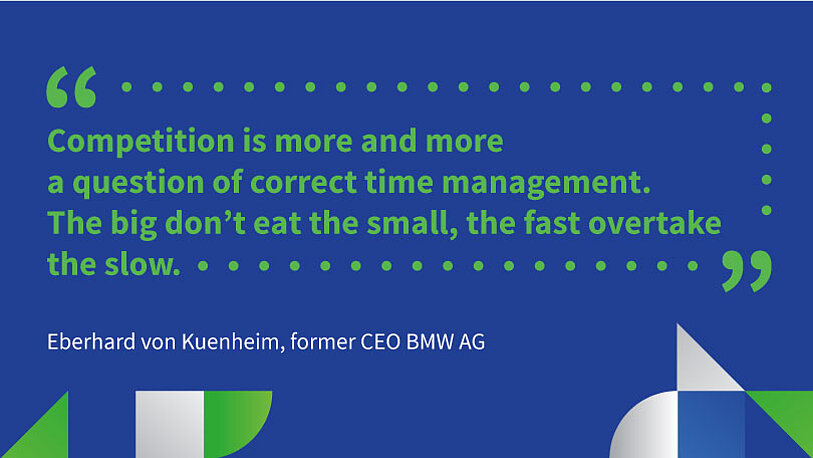The perfect way to speed up your product development

PLE and Holistic Variant Management
by Michael Schulze
Optimizing products and processes is essential for companies to remain competitive. By applying PLE and by using software-based variant management solutions, companies can not only offer better products and work more sustainably, but also speed up processes, saving time and money.
To meet the increasing demands of their customers, companies have to develop new and innovative products. In most industries, products have to be upgraded by adding smart features, which can be a very complex task. This poses major challenges for a wide range of companies, especially for manufacturers who are still relying on processes which were established long before products turned smart, and thereby complex.
Today’s products, which come with demanding requirements and often involve a high proportion of software, simply cannot be developed with methods that were established decades ago. Developing and producing such products effectively and in a sustainable and reliable way can only be achieved with contemporary methods. Time and speed are also important factors. Wasting time on updating complex spreadsheets manually or by requesting crucial information from other departments because the data isn’t centrally accessible for all stakeholders throughout the company can cost a company in many ways.
To develop and manage contemporary products and processes, a new and holistic approach is needed. Rather than focusing on the development of single products, a completely new approach should be taken. The best way of doing this is to use the advantages of product line engineering (PLE) and efficient, software-based tools for variant management. This way, all product variants and assets can be managed efficiently and quickly - across all departments.
Determine quickly whether a product variant can be manufactured
With the help of software-based variant management, companies can determine much faster whether a new product variant can actually be manufactured. This is crucial for many companies with complex products. With the right solution in place, it only takes a fraction of the time to determine what is possible - and what isn’t - compared to when outdated solutions and processes are being used. Depending on the size of the company and the industry, companies can often save several weeks or even months - and thereby potentially hundreds of thousands of Euros - by speeding up the process, and also make sure that their clients don’t start looking for other partners who react faster.
Developers can concentrate on their core competencies: innovations
Thanks to the time saved compared to ineffective methods and tools such as Excel spreadsheets, developers can concentrate on their core competencies, which leads to more innovations. In other words: A software-based tool like pure::variants allows companies to operate more efficiently, enabling developers and other members of staff to focus their attention and time on the actual development of new methods and products instead.
Fast implementation, quick results
Our variant management tool pure::variants does not only speed up the development of products and processes, it can also be implemented quickly. As experts in PLE, we have helped lots of companies across multiple industry segments to optimize their products and to make their processes more efficient, sustainable - and faster. In total, these companies operate and engineer hundreds of product lines, meaning tens of thousands of engineers rely on pure::variants in their daily engineering activities.
About the author
As principal consultant, Dr. Michael Schulze leads the consulting team at pure-systems. Dedicated to research, Michael drives the research on variant management topics and pure-systems’ involvement in national and international research projects. He also works on variant management related standards. After receiving his diploma degree in computer science from the University of Magdeburg, Michael started working for pure-systems for the first time in 2003. He returned in 2011 after completing his PhD at Otto-von-Guericke University. His research was focused on embedded and operating systems, adaptable event-based communication middleware, and on mechanisms and concepts for resource constraint devices.